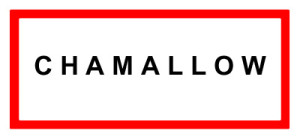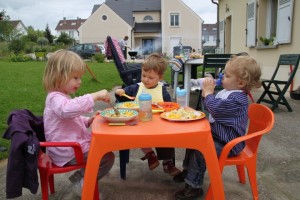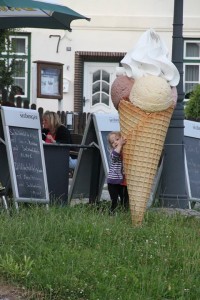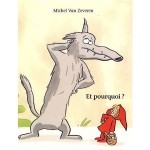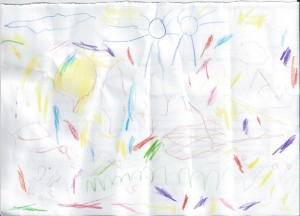Yesterday I took my now-almost-4-year-old daughter to the playground at the end of the street where I grew up and where my mom still lives. We’d been there before on a previous visit, it’s a nice little playground for younger kids, but this was the first time we went there and other kids (and moms) were present.
From what I overheard, they were all German except for a Spanish-language mother who spoke Spanish with her son. My daughter didn’t interact with any of the kids who were older than her but approached one girl who had to be about 2 or 2½. Holding out a borrowed shovel, she asked: “C’est à toi?” (Is that yours?)
After that little girl left, she found an even younger boy (almost two, his dad told me) whom she helped up the hill to the slide, saying “Prends ma main.” (Take my hand.)
I reminded her of what I’d told her during that little girl encounter: “Auf Deutsch, sonst versteht er dich nicht.” (In German, or he won’t understand you.)
Today, her little cousin (same age as the little boy) came to visit, and she never said a word in French (but many in German).
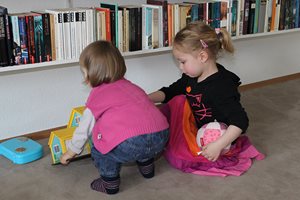
My mom and I both think that to her, these younger children fall into two categories: The playground children into “other children, like at school”, that is, French-speaking; her cousin, into the category “mommy’s family”, that is to say, German-speaking.
The one thing that throws off our theory a bit is that after a few minutes in the playground, and well before interacting with either of the two younger children, she exclaimed: “Mama, die sprechen Deutsch wie du!” (Mommy, they speak German like you!)
So, any guesses better than mine?

